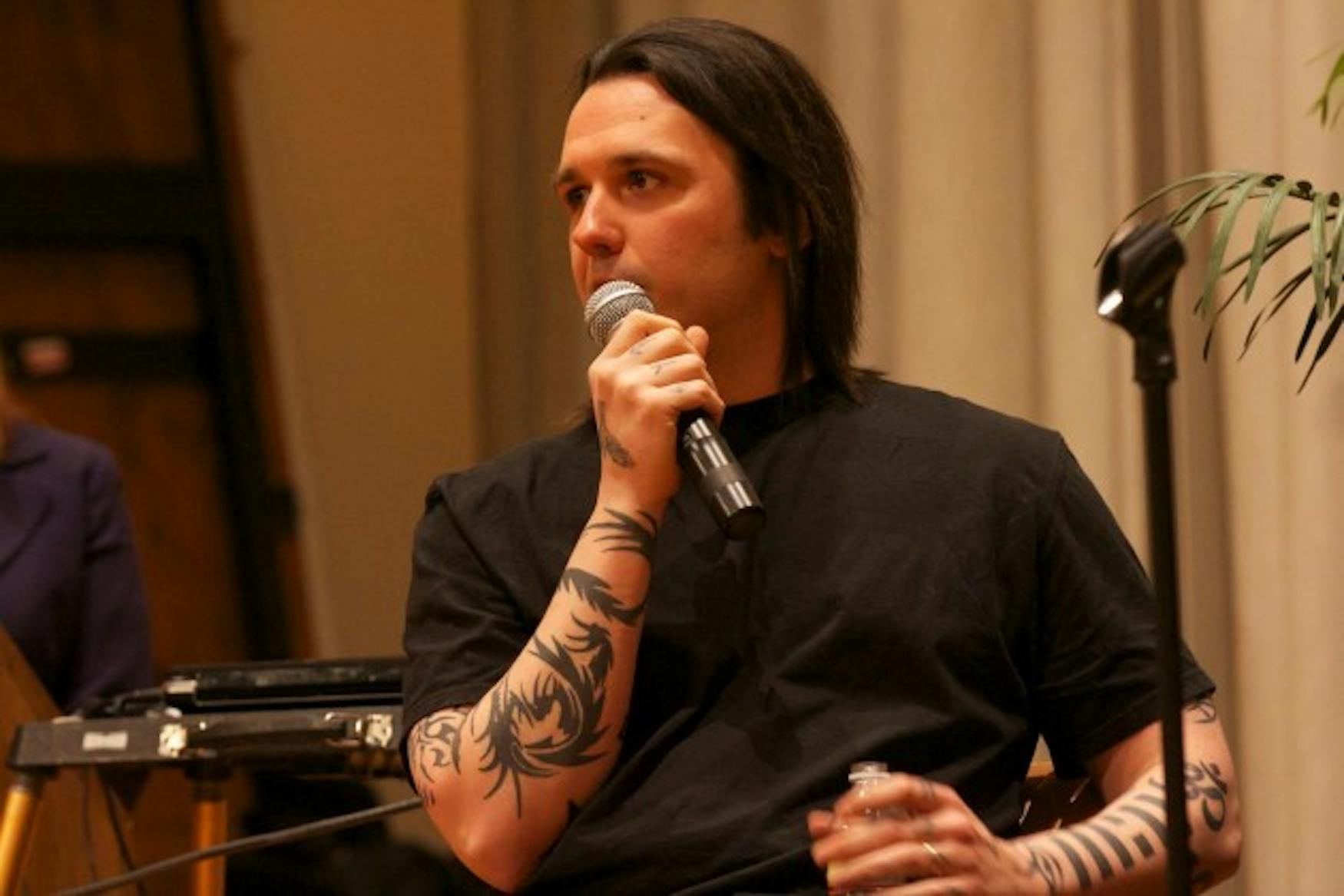Former death row inmate shares his story
Last Tuesday, Damien Echols, a former death row inmate now working towards his exoneration, spoke with students from the Justice Brandeis Innocence Project at an event called "Life After Death Row," part of the second annual 'Deis Impact.
Anne Driscoll, senior reporter for the Justice Brandeis Innocence Project at the Schuster Institute for Investigative Journalism, introduced a panel of speakers, which consisted of Echols, his wife Lorri Davis, his defense team advisor Lonnie Soury, and CBS correspondent Erin Moriarty, who interviewed Echols as a death row inmate following his release from prison.
Echols was convicted in 1994 as the ringleader of the "West Memphis Three," along with Jessie Misskelley, Jr. and Jason Baldwin, who were convicted of the 1993 murders of three boys in West Memphis, Ark. Following their convictions, the case has received considerable publicity as an example of a wrongful conviction, leading to the production of documentaries such as the Paradise Lost trilogy and West of Memphis, the latter one produced by Peter Jackson, and gaining celebrity support from the likes of Johnny Depp and Eddie Vedder.
In 2007, new evidence showed that none of the crime scene material contained the DNA of any of the men. Echols, Baldwin and Misskelley were released from prison in August 2011 after entering an Alford plea, which allowed them to proclaim their innocence while pleading guilty to the crime so that they could leave jail.
After a brief screening of the trailer for West of Memphis and Moriarty's interview with Echols after his release, the JBIP students posed questions for Echols and the panel. Echols discussed his struggles and hardships in prison and the health difficulties he faced.
After spending most of his days in solitary confinement in his last 10 years in prison, Echols lost the ability to see in most types of light without dark-lensed glasses. He addressed the constant fear of being attacked by inmates, who were often coerced by prison officials into doing so. Additionally, his health continued to decline to the point where he would sleep and not be confident he would live to see the morning. "You're living with death hanging over your head at any moment and all of those things combined wear you down," he noted in his 48 Hours interview.
Echols segued into his relationship with Lorri, a landscape architect in New York who believed strongly in his innocence and began corresponding with him. In 1998, she quit her job and moved to Little Rock, Ark., an hour from the prison, to visit him. On Dec. 3, 1999, they married.
"Whenever I was in prison," Echols said, "people always asked me what things kept me going, what kept me from giving up, and it was two things: it was my spiritual practice and it was Lorri." He continually expressed his love and thanks for his wife, who has remained one of his biggest advocates and supporters, while also discussing his admiration of Buddhism.
After meeting with a Buddhist monk who was performing last rites, Echols and the monk began correspondence as a healthy outlet for Echols. He spoke of the stress and depression he faced during his over 18 years on death row, and his eventual conversion to Rinzai Buddhism-a Japanese sect of Zen Buddhism practiced by Samurais-as a means of survival.
Members of the audience asked Echols and the panelists questions relating to various topics from life in prison to the trial and the difficulties of transitioning into society. Carly Gutner-Davis '15 asked about politically motivated prosecutions, to which Soury, Echols' defense team advisor, responded that while prosecutions are not politically motivated, the issues themselves can become politicized.
Celia Cataldo '13 spoke in an interview with the Justice, after the presentation, of her longstanding interest in Echols and his story. "I heard about the case a few years ago. I watched the Paradise Lost documentaries on HBO and it just made me so interested. I've been following it for a while. People seemed to come here from all over, older people, young people, even from other colleges."
In an interview with the Justice, Davis and Soury addressed their hopes and fears regarding Echols' battle toward exoneration. "We would probably try to develop enough evidence to go to the governor," said Soury. He continued that in the best scenario, "a judge could overturn the original verdict and throw out the original indictment," which would allow the case to be re-opened without the potential for indicting Echols again.
Before the close of the presentation, Echols again referenced his core beliefs and his focus on living. He spoke of his spirituality in depth, noting that he wants to open a meditation center in Salem, Ma. He finished with a message not to dwell on death, on the negative, but to keep alert and aware of your surroundings: "Whenever they train racecar drivers they tell them don't look at the wall," he says. "Look at your instrument panel, look at the track, look at the other drivers. But don't look at the wall. Because you're going to move in the direction that you focus your attention on."
Echols held a signing for his book Life After Death in the packed Rapaporte Treasure Hall at the end of the program.
*



Please note All comments are eligible for publication in The Justice.